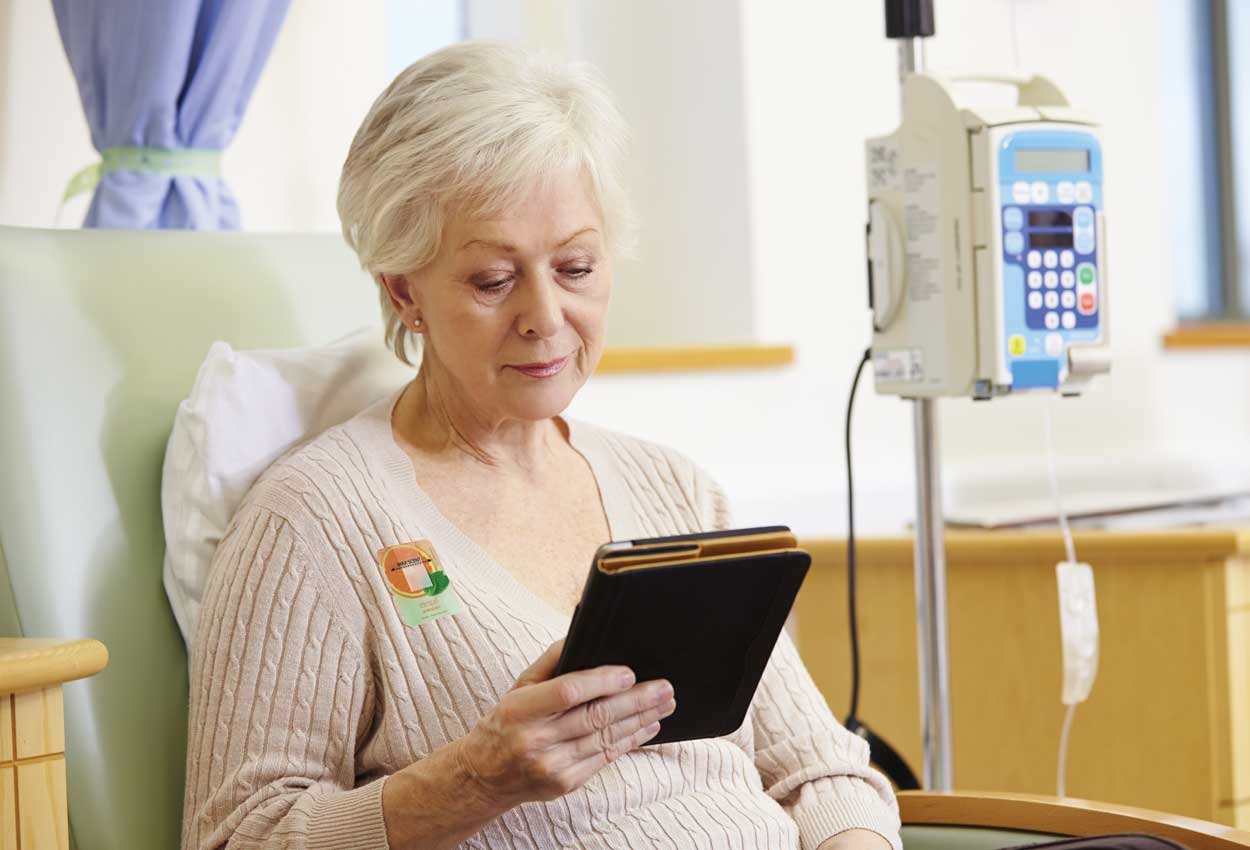
Part two of a four part series
- Because of the popularity of the Elequil aromatabs® brand, aromatherapy made for the clinical setting, we are often asked how others successfully achieved adaptation of an aromatherapy initiative.
As a result, Beekley Medical teamed up with Worldwide Business Research to present a webinar that included the expertise and experience of three panelists using aromatherapy within their role at their hospital.
During the webinar, there was an abundance of questions for the panel on how they implemented aromatherapy at their facility. Since others in healthcare have the same questions we compiled the panelists' answers into a blog series for others seeking guidance on how to build a successful aromatherapy initiative as a non-pharmacological approach.
Meet the panelists:
• Alicia Plumer, MSN, RN, CPAN, Nurse Manager, PACU at Woman’s Hospital in Louisiana
• Niels Tobiasson RN, BSN, OR Nurse/Surgery at a large hospital HCS in Texas
• Kristine Kowalski BSN, PHN, MA, CHPCA, Palliative Care Coordinator at Mission Hospital, CA
Expert panel weighs in on the impact of their clinical aromatherapy program on patient care and satisfaction
 Alicia: As a women's specialty hospital, we treat a lot of pregnant patients. We have several patients that come in with multiple readmissions early in pregnancy for nausea and vomiting, hyperemesis, which then of course leads to high anxiety from the repeat admissions. We do have aromatherapy available to those patients when they come into the facility.
Alicia: As a women's specialty hospital, we treat a lot of pregnant patients. We have several patients that come in with multiple readmissions early in pregnancy for nausea and vomiting, hyperemesis, which then of course leads to high anxiety from the repeat admissions. We do have aromatherapy available to those patients when they come into the facility.
One patient had several readmissions due to hyperemesis. She had been given lots of IV fluids as well as nausea medications. She was readmitted again and this time we had the aromatherapy in place, we offered it to her, and she did use it. She required fewer medications during that admission and she was very pleased that it was just a little something extra to help relieve her symptoms. In fact, by the time she was ready to be discharged, she wanted to find out how she could take some home.
In another example, I walked through the recovery room just a couple of weeks ago and a nurse was actually in the process of administering the aromatherapy to a patient and this patient happened to be awake and alert and they stopped me. The patient thanked me herself because we have the aromatherapy available. She shared how wonderful it was and that she always was very nauseated anytime she's had to have surgery and that it (the aromatherapy) was helping her tremendously.
 Kristine: One patient definitely comes in mind. He was a young gentleman that unfortunately did have a life-limiting cancer. During his initial chemo treatment, the expectation obviously was that he would be anxious, but he came in with an extended family. I'm sure they were there to support him, but unfortunately they were actually causing him more stress and anxiety.
Kristine: One patient definitely comes in mind. He was a young gentleman that unfortunately did have a life-limiting cancer. During his initial chemo treatment, the expectation obviously was that he would be anxious, but he came in with an extended family. I'm sure they were there to support him, but unfortunately they were actually causing him more stress and anxiety.
He was refusing standard medication cause he didn't want the sedation. He wanted to be in control and be aware of what was occurring. His family was getting frustrated because he was more anxious and, and he wasn't receiving what they thought was medication to control his anxiety. So I offered the aromatherapy products.
Initially the family first questioned the cost and once I told them that it was complimentary through palliative care, they all took a scent of their choice and literally within minutes the energy just deescalated. They were speaking in a softer tone or anxiousness went from a 10 to a 1. Their focus was more on just discussing common activities and the non-restful side effects of the chemo and everything that the patient may anticipate having. At the time I left, they were all laughing and it was just a nice change without having to administer opioids or other medications.
 Niels: There was a lot of positive feedback that I was able to receive from nurses that were administering the aromatherapy to patients. One that I remember, the patient said that it helped her so much with her nausea and vomiting, that she wanted the information on how to purchase Elequil aromatabs herself for private use afterwards.
Niels: There was a lot of positive feedback that I was able to receive from nurses that were administering the aromatherapy to patients. One that I remember, the patient said that it helped her so much with her nausea and vomiting, that she wanted the information on how to purchase Elequil aromatabs herself for private use afterwards.
We educated about the use of aromatherapy being a first line defense. After teaching this, a nurse was telling me she tried all the other traditional antiemetics, for nausea, vomiting, nothing was working. So she said she tried aromatherapy and it worked better than all the medications. And she was kind of surprised. This taught me that I need to do better at education in this area – of using aromatherapy as the first line of defense.
Expert panel weighs in on the choosing the right aromatherapy delivery system for their patients
 Alicia: Prior to implementation of aromatherapy in our organization, the extent of adjunctive therapy offered, as far as that goes was basically maybe waving an alcohol pad for a patient to inhale while they were nauseated.
Alicia: Prior to implementation of aromatherapy in our organization, the extent of adjunctive therapy offered, as far as that goes was basically maybe waving an alcohol pad for a patient to inhale while they were nauseated.
Our main objective was that we wanted to steer away from anything that would be topical application to avoid dealing with possible skin reactions and allergies. We wanted something that was a single use application.
Then we wanted a product that would be available for different uses - something that would cover queasiness, something that would cover anxiousness and something to help patients if they're having trouble sleeping. From there we found what we were looking for in Elequil aromatabs.
 Kristine: The aromatherapy products were already established here at the hospital, but shortly after I began the palliative care program here, the health care system created a committee and they wanted to look at more options for aromatherapy products.
Kristine: The aromatherapy products were already established here at the hospital, but shortly after I began the palliative care program here, the health care system created a committee and they wanted to look at more options for aromatherapy products.
What their options included were more, non-professional means of administration. Literally they were talking cotton balls and a little plastic baggy taped to a patient's gown. I brought forth the Joint Commission specifications, administration standardization and infection control, you know, patient safety with single patient use. So, it really wasn't, wasn't that difficult to justify utilizing the current aromatherapy products that we are using. I wanted to keep it individualized and some of these other products provided a little bit too much scent and obviously we didn't want it too.
The intent was never for it to be included for the entire patient’s room. So if they were in a shared room, if the other patient didn't like or want the scent. So the current aromatherapy product we're using, it's individual and only for that patient.
 Niels: I was similar to Kristine in that I heard a lot of different options that were available for aromatherapy. I was wanting something that we would be able to attach to the patient, either their gown or somewhere close to them so it would be more of a personal intervention for the patient instead of everyone in the room, like a diffuser would be.
Niels: I was similar to Kristine in that I heard a lot of different options that were available for aromatherapy. I was wanting something that we would be able to attach to the patient, either their gown or somewhere close to them so it would be more of a personal intervention for the patient instead of everyone in the room, like a diffuser would be.
I also saw some aromatherapy options that were in just a little tub. You opened up the top and you had to hold it close to the patient for them to be able to receive any benefit from it, which wasn't really a practical application for us in the operating room. So I was looking for other options that would allow us to maybe attach it to their gown so they would get the benefit without exposing everyone in the room to descent. I know some people don't like some scents versus others. We wanted it to specific for that patient.
In Part 3 of this series (publication date April 3, 2020), the expert panel will share how to help train the staff, getting key stakeholders and decision makers on board, how starting an aromatherapy program compares to other programs started in the hospital and top recommendations on how to get started.
To learn more about Elequil® and the use of aromatherapy in the clinical setting, visit Elequil.com. To request materials for a trial evaluation at your clinic, contact your Elequil Account Manager at 1-800-233-5539 or info@beekley.com.
Related articles:

Melissa Vibberts
Director of Brand Management
